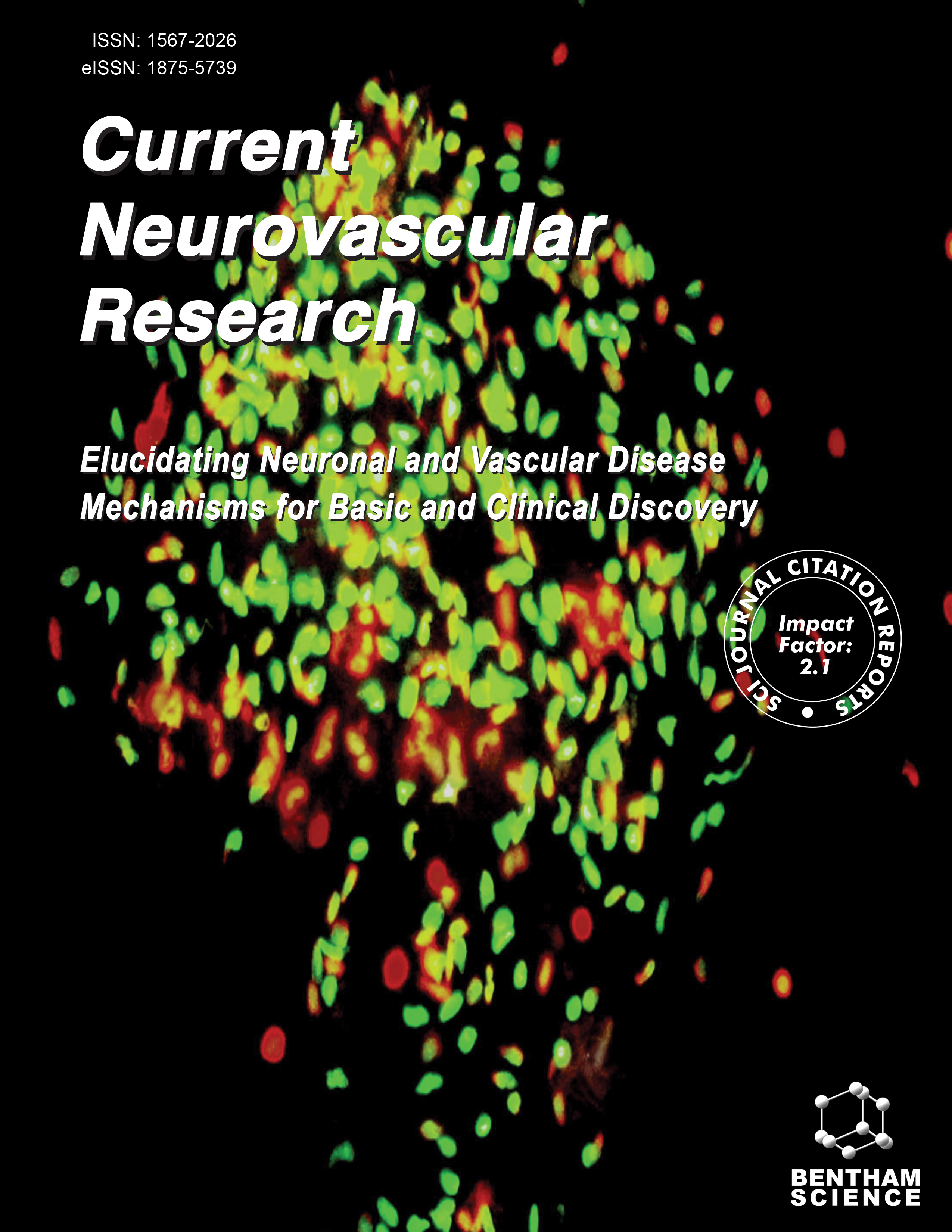-
oa Pan-Immune-Inflammatory Value Predicts the 3 Months Outcome in Acute Ischemic Stroke Patients after Intravenous Thrombolysis
- Source: Current Neurovascular Research, Volume 20, Issue 4, Nov 2023, p. 464 - 471
-
- 01 Nov 2023
Abstract
Background and Purpose: Immune and inflammatory response plays a central role in the clinical outcomes of stroke. This study is aimed to explore the clinical significance of the new inflammation index named pan-immune-inflammation value (PIV) in patients with acute ischemic stroke (AIS) after intravenous thrombolysis therapy (IVT).Methods: Data were collected from 717 patients who received IVT at the First Affiliated Hospital of Soochow University. Baseline data were collected before intravenous thrombolysis. Multivariate logistic regression analysis was used to assess the association between PIV and 3 months clinical outcome after intravenous thrombolysis. We also used receiver operating characteristic (ROC) curves analysis to assess the discriminative ability of PIV, platelet to lymphocyte ratio (PLR), neutrophil to lymphocyte ratio (NLR), and systemic immune-inflammation index (SII) in predicting 3 months poor outcome.Results: Of 717 patients, 182 (25.4%) patients had poor outcomes at 3 months. Patients with 3 months of poor outcome had significantly higher PIV levels compared to those with favorable outcomes [316.32 (187.42-585.67) vs. 223.80 (131.76-394.97), p < 0.001)]. After adjusting for potential confounders, the risk of 3 months of poor outcome was significantly higher among patients whose PIV fell in the third quartile (244.21-434.49) and the fourth quartile (> 434.49) than those in the first quartile (< 139.93) (OR = 1.905, 95% CI: 1.040-3.489; OR = 2.229, 95%CI: 1.229-4.044). The area under the ROC curve of PIV to predict 3 months of poor outcome was 0.607 (95%CI: 0.560-0.654; p < 0.001). The optimal cut-off values of PIV were 283.84 (59% sensitivity and 62% specificity).Conclusion: The higher levels of PIV were independently associated with 3 months of poor outcomes in AIS patients receiving IVT. PIV like other inflammatory factors (PLR, NLR, and SII), can also predict adverse outcomes after IVT in AIS patients.


